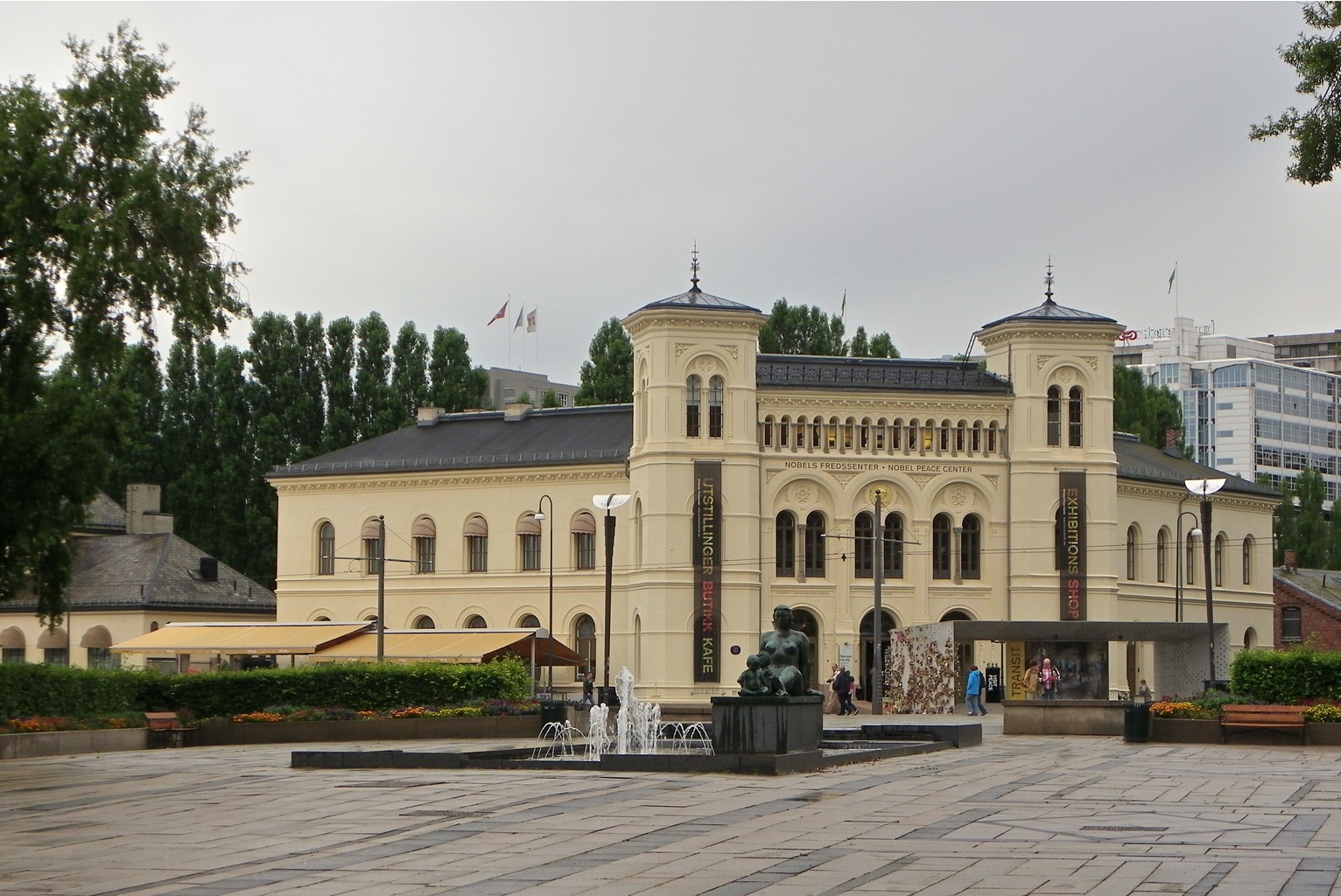Nobel Prize Tour in Oslo
We invite you to explore Oslo, the city of the Nobel Peace Prize, on our 2 hours walking tour. All sites connected to the Prize are located close to each other and illustrate a fascinating story of impressive achievements and crushed dreams.
Nowadays the Nobel Peace Prize is one of the most prestigious world awards, adjudged for making the biggest contribution in friendly relationships between nations, abolishment or contraction of existing armies, or organization and agitation for peaceful demonstrations. The prize was established by Alfred Nobel, a Swedish engineer, innovator, and manufacturer, along with other four Nobel Prizes (even though there is a Nobel Memorial Prize in Economics, which is sometimes falsely considered to be the sixth prize, it was established only in 1969 and was not included in the Nobel’s testament).
Unlike the other Nobel Prizes, the Noble Peace Prize is the only prize whose laureates are selected not in Sweden, but in Norway. In particular, the prize laureates are chosen by the Norwegian Nobel Committee consisting of 5 members appointed by the Storting, the Parliament of Norway. The reason for Nobel’s decision to adjudge the prize in Norway may lie in the fact that Norway and Sweden were in the union at that time. Moreover, Nobel could have pondered that a country without its own foreign policy (Norway had a mutual foreign policy with Sweden) may be more unprejudiced in selecting candidates. As well, it is commonly considered that Nobel had made such a step as a sign of respect to the Storting, the first parliament which supported the world pacifist movement by a special resolution.

Nobel Peace Prize Institute
In 1904, the Norwegian Nobel Institute, the main duty of which is to assist the committee in selecting the prize laureates and organizing the award ceremony, was founded. It can boast a wonderful library with more than 200,000 titles concerning international relations, peace, and conflict affairs. The institute is located in the central part of Oslo.
The first Nobel Peace Prize was awarded to Jean Henri Dunant, a Swiss businessman, and activist (for his role in the establishment of the Red Cross and creation of Geneva Conventions), and Frederic Passy, a French politician and economist (for his long-term peacekeeping efforts), in 1901. Later, the prize has been adjudged to many notable persons: T. Roosevelt (1906), F. Nansen (1922), G. Marshall (1953), M. Luther King (1964), Willy Brandt (1971), A. Sakharov (1975), Mother Teresa (1979), L. Walesa (1983). In particular, it can be noticed as the trend of awarding the prize to human rights activists like Lech Walesa and Andrei Sakharov appeared.
However, the Nobel Peace Prize has been awarded not only to personalities but also to various organizations, particularly to Institut de Troit International (1904), International Peace Bureau (1910), International Committee of the Red Cross (1917, 1944, and 1963), the Nansen International Office for Refugees (1938), the International Labour Organization (1969), and a number of others. Yet, the Nobel Peace Prize was not adjudged to anyone 19 times (mostly due to the world wars), and in such cases, the prize was distributed to the following laureates.
Sometimes the prize was subject to various speculations and disputes due to controversial choices of the committee. Yasser Arafat, well-known for his terrorist attacks against Israel (even though he abandoned the idea of using terror as a way of political struggle in 1988), received the Nobel Peace Prize in 1994 for his efforts to bring peace with Israel. Mikhail Gorbachev, a former General Secretary of the Soviet Union’s Communist Party, was awarded the prize in 1990 for his role particularly in pulling out the USSR troops from Afghanistan and letting Germany reunite. Later, he authorized the troops to enter the Baltic States in order to suppress democratic demonstrations – the move, which, however, had not saved the Soviet Union from dissolution. Barack Obama, the President of the United States, also received the Nobel Peace Prize in 2010 for his peacekeeping efforts and withdrawal of troops from Central Asia and the Middle East. However, many critics point out that it led to a weak foreign policy of the US, which caused even bigger turmoil in the Middle East.
On the other hand, candidates for the prize were too odious sometimes and remained so in world history. In 1917, the government of Norway (some sources point out that it was the Labor Party of Norway) proposed to award Lenin, notoriously known thanks to his methods of political struggle, for pulling Russia out of the First World War. Moreover, such tyrants as Mussolini (1935), Hitler (1939), and Stalin (1945 and 1948) were nominated for the prize. Stanley Tookie Williams III, one of the founders of the Crips gang and a murderer of four people, was nominated for the Nobel Peace Prize 9 times, yet he received a death sentence in the end.
The prize laureates are announced every year on the second Friday in October. However, the award ceremony takes place on 10th December, the day of Nobel’s death, in the Oslo City Hall. The Nobel Peace Prize is awarded by the chairman of the Norwegian Nobel Committee in the presence of Norway’s King and Royal Family.
Share this post:


